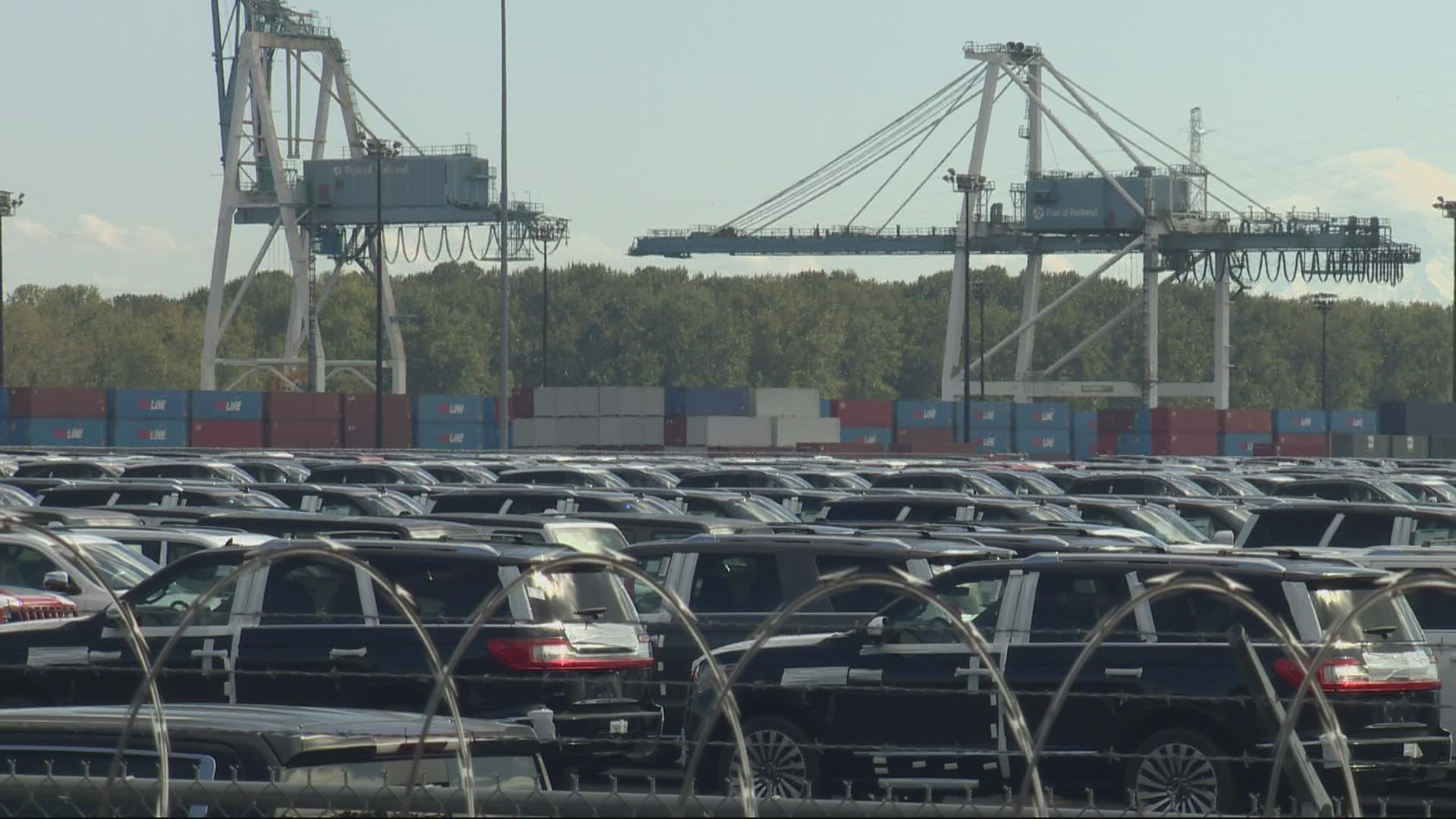PORTLAND, Oregon — More ships are coming to Portland to avoid multi-day delays at the ports of Long Beach and Los Angeles, California. Dozens of ships wait off California’s coast to unload their cargo.
According to experts, it’s a supply chain issue created by a number of factors including the COVID pandemic which shut down factories overseas and partly closed foreign ports, American buyers purchasing more goods online, plus a labor shortage nationally of truck drivers that's taking longer to move product off the docks when it does arrive.
The backup is maddening for anyone trying to get that product into stores and for consumers looking for items stuck at sea.
“We are living in a madhouse,” said Ion Badea, a shipping expert with the Norton Lilly International Company. It specializes in dealing with everyone from customs to immigration to longshore workers on behalf of the ships that need to be unloaded. He is based in Portland but works the entire west coast.
Badea said problems in California could become opportunities in Oregon.
“Portland, Everett and even San Diego are becoming a very interesting target for ad hoc calls,” he said.
Ships run schedules similar to buses stopping at multiple places on a route before going back to the starting point. An ad hoc ship is different and can be sent directly anywhere, like Portland.
The Port of Portland recently announced that several ad hoc ships will be delivering containers at Terminal 6.
“Three shippers are bringing their products to Terminal 6 on chartered vessels. Vessels began arriving in mid-August and will continue to discharge 600 containers every three weeks. These are one-off vessel calls and not part of a regular service,” read a port release.
The statement described additional ships now using Portland to unload their goods.
Since August, eight vessels carrying 200-300 containers that are 53-foot long, rather than the standard 20 feet, have unloaded at Terminal 6 and will continue to do so through 2022, according to the release.
That’s good news for dock workers, truck drivers and those who sort the products at distribution warehouses. It may also be good news for Portland-area consumers who are likely to see products on store shelves, or being delivered, sooner than if the ships waited off California with everyone else.

